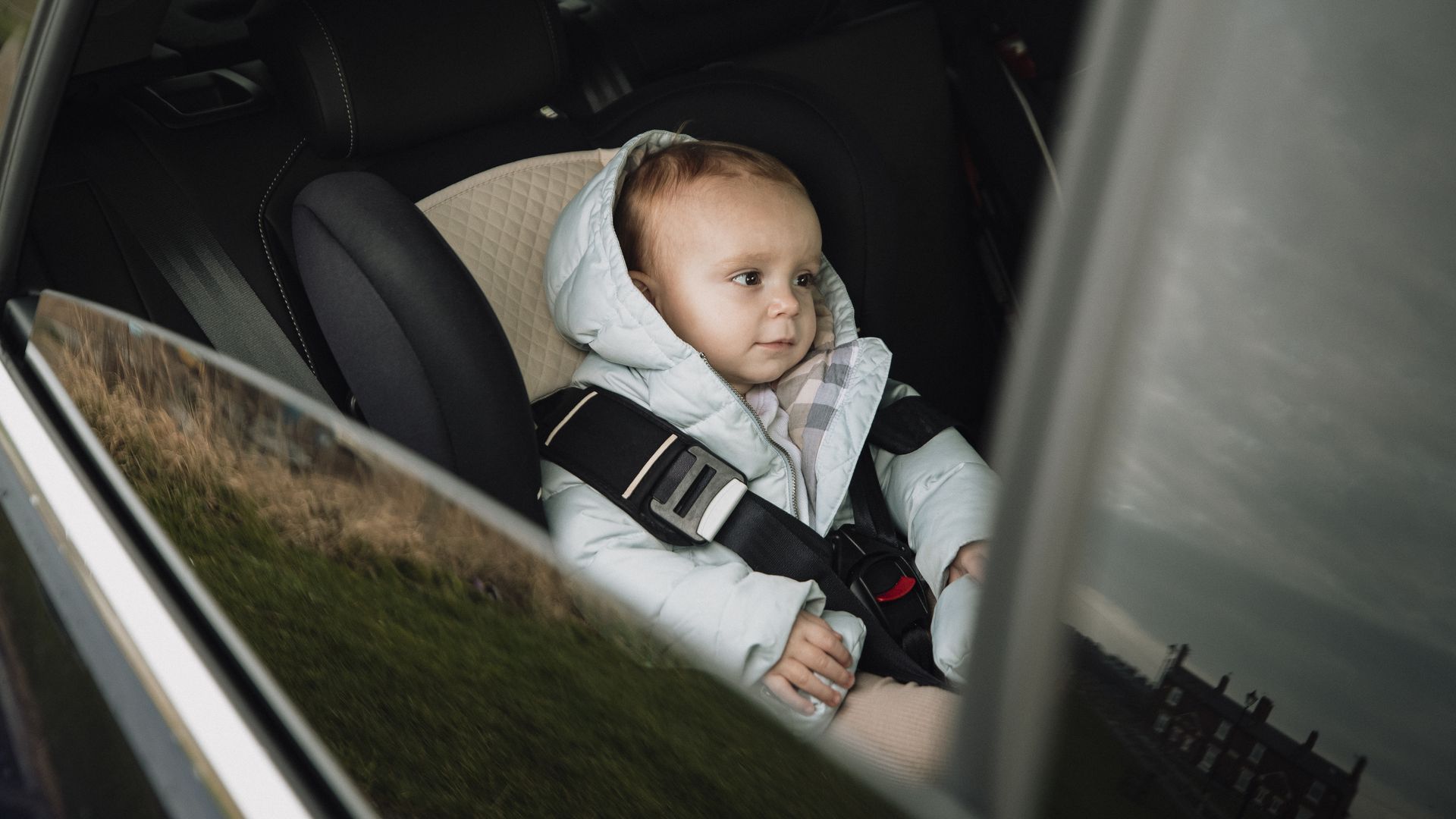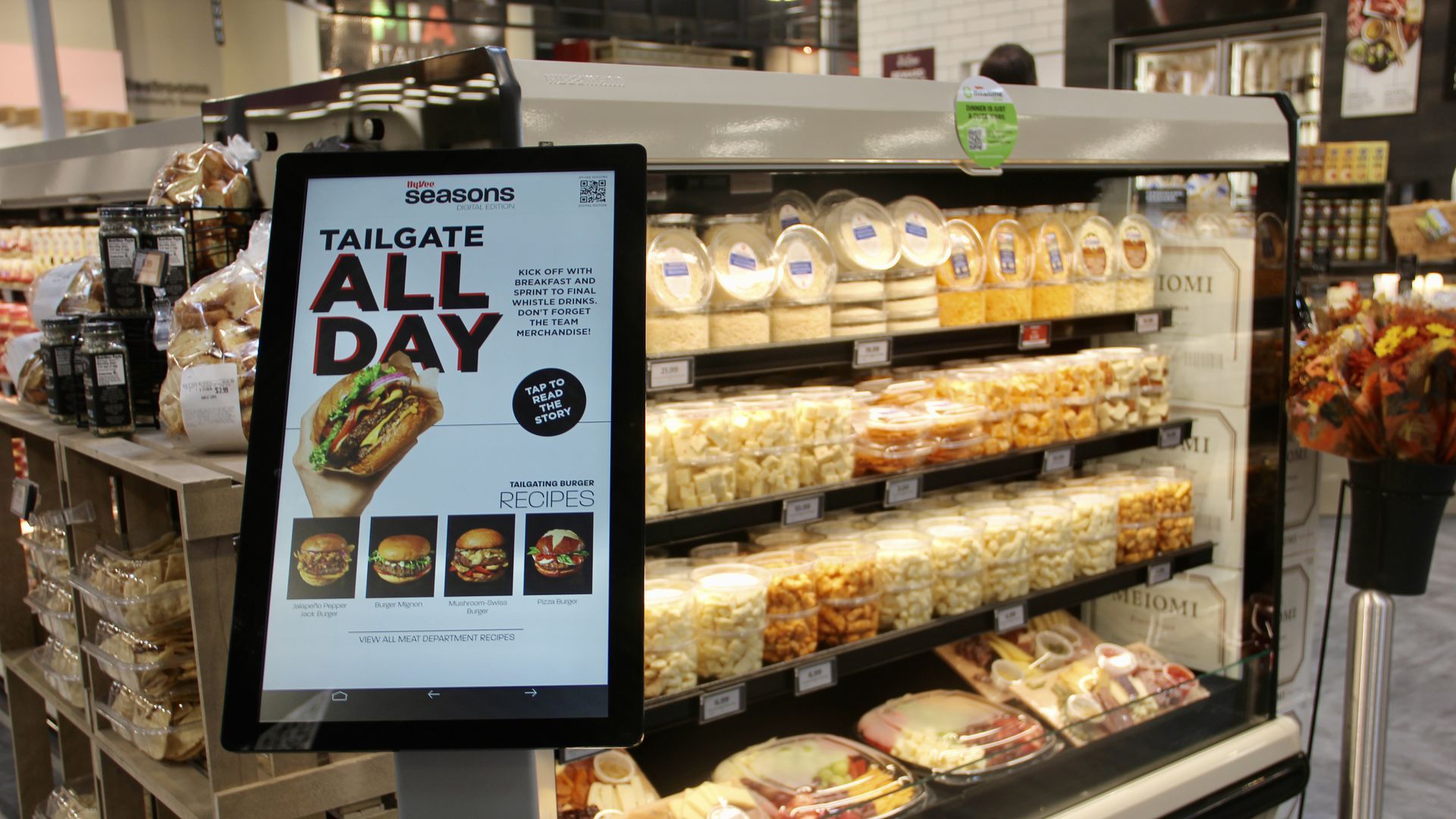| | | | | | | Presented By General Motors | | | | Axios What's Next | | By Jennifer A. Kingson, Joann Muller and Erica Pandey ·Sep 15, 2021 | | Now that a trio of Democratic senators has begun a push to legalize marijuana, concern is mounting that people of color — who've been disproportionately hurt by the endless "war on drugs" — aren't getting a fair shake at opportunities in the pot biz, as Jennifer A. Kingson reports. - As for you, fair reader: Your assignment is to send us a great photo that tells us something about how we're living, working, playing and getting around: Email whatsnext@axios.com.
- Today's winner is David Hopper (and his dog, Evie).
Today's Smart Brevity count: 1,134 words ... 4.5 minutes. | | | | | | 1 big thing: Racial equity is elusive in the legal weed business |  | | | Illustration: Aïda Amer/Axios | | | | Efforts to help Black and brown people succeed as cannabis entrepreneurs are not working — despite efforts in weed-legal states to encourage diversity in ownership and management, Jennifer A. Kingson writes. Why it matters: People of color have been disproportionately targeted by the "war on drugs," so, as the pot industry expands, cities and states have tried to make social justice a priority in granting licenses. - But people in underrepresented groups often lack access to the capital they need to go up against "big marijuana."
- They also lack the family-and-friends connections that give others a boost.
Driving the news: In July, three Democratic senators (Cory Booker, Chuck Schumer and Ron Wyden) released a discussion draft of legislation to remove cannabis from the federal list of controlled substances — a move meant "to end the decades of harm inflicted on communities of color." Comments have poured in on the Cannabis Administration and Opportunity Act, which would: - Automatically expunge federal nonviolent marijuana crimes.
- Enable medical research on cannabis.
- Give legitimate cannabis businesses access to banking services.
- Keep people from being denied public housing or federal student loans because they used cannabis in states where it's legal.
- Create an "Opportunity Trust Fund" from federal cannabis tax revenue "to reinvest in the communities most impacted by the failed War on Drugs, as well as helping to level the playing field for entrepreneurs of color who continue to face barriers of access to the industry."
The big picture: Some states that legalized cannabis have set aside licenses for underrepresented operators, but that hasn't moved the needle. - "Ownership and C-suite representation — it's mostly white men still," Morgan Fox, spokesman for the National Cannabis Industry Association, a trade group, tells Axios. "It's trending in the right direction, but it has a long way to go."
- "Most social equity programs have failed — even programs that were designed to yield a multitude of minority owners," says Amber Littlejohn, executive director of the Minority Cannabis Business Association.
- Too many winners of the social equity license lotteries "have sold their licenses or, in truth, are backed and managed by companies that are not minority owned," Littlejohn tells Axios.
By the numbers: A 2017 survey by Marijuana Business Daily found that less than 10% of marijuana business owners are Black or Latino —a percentage that plummets when you only count "plant-touching" businesses like dispensaries and farms. - Black consumers nationally are 3.6 times more likely than white consumers to be arrested on cannabis charges, despite roughly equal rates of use, according to New Frontier Data, a cannabis consultancy.
Reality check: Any federal legislation is going to be a tough sell. - On the right, there are objections to legalizing pot, amnesty programs and expunging the records of offenders.
- On the left, there are complaints that the draft bill doesn't go far enough in redressing racial inequities or compensating targeted communities.
Read the full story. |     | | | | | | 2. Safety advocates push tech to save kids trapped in hot cars |  | | | Photo: SolStock via Getty Images | | | | All vehicles could soon be equipped with warning systems aimed at preventing children from dying in hot cars, but safety advocates say a law working its way through Congress won't do enough to save lives, Joann Muller writes. Why it matters: Nearly 40 children die every year of heatstroke because they were left in the back seat by a parent or caregiver — or climbed inside a car on their own. Since 1990, approximately 1,000 kids have died nationwide, according to KidsAndCars.org. - Four have died this month to date, including a baby who suffocated in a car after her mother was shot and killed in Orlando, Florida, and twin toddlers who died in a hot car in South Carolina.
Driving the news: The bipartisan infrastructure bill that passed the Senate last month would require new motor vehicles to have an alert system that would remind people to check the back seat upon exiting the car. - The House expects to take up the bill this month.
- The law would replace a voluntary commitment by automakers to equip virtually every new car with a rear-seat reminder system by the 2025 model year.
However, safety advocates say there is better technology available. Read the full story. |     | | | | | | 3. The worker shortage seems to be worsening |  Data: Alignable; Chart: Jared Whalen/Axios A survey by Alignable, a referral network for small businesses, found that the Delta variant seems to be turning this summer's labor shortages into even more of a nightmare for business owners, Jennifer writes. - Alignable surveyed 4,079 of its members from Aug. 15 to Sept. 13 and found that 66% were having a "very difficult" time finding the right workers for open roles.
- That number is way up from the 50% who said the same thing in July and the 59% who said it in August.
|     | | | | | | A message from General Motors | | An EV for everyone | | |  | | | | General Motors is adding 30 new electric vehicles and producing the revolutionary Ultium Platform. The background: This is made possible by a $35 billion investment in EVs and AVs through 2025 to make the all-electric future accessible for everyone. | | | | | | 4. Hy-Vee's vision of the grocery store of the future |  | | | A food dining hall in the new Hy-Vee in Grimes, Iowa. Photo: Linh Ta/Axios | | | | Hy-Vee's newest grocery store opened in Grimes, Iowa, on Tuesday, featuring some of the company's latest modern experiments in attracting customers, writes Linh Ta of Axios Des Moines. The concept: The 93,000-square-foot facility is the company's first venture into a "smart store" — a grocery store that integrates digital conveniences like scan-and-go shopping, in which customers can skip lines by using an app to buy their items. - Large portions of the store are also dedicated to Hy-Vee's non-grocery partnerships, like DSW, The W Nail Bar and Joe Fresh clothes.
What's new: Kiosks are located throughout the store to help you do everything from order a custom cake to buy an elliptical machine. A fitness equipment showroom display. Photo: Linh Ta/Axios - Looking for high-end wines? You can find $1,000+ bottles in the store's wine and spirits section, plus a cigar room.
- There's a hot food area that functions like a food hall. Order at a kiosk, sit down and someone will bring out your Hy-Chi.
- There are no more paper price tags in aisles. They're digital instead, requiring less labor.
- And yes, a vending machine will even make you a custom salad.
Read the full story. The dining hall concept in the new Grimes Hy-Vee. Photo: Linh Ta/Axios |     | | | | | | 5. Reader photo of the day |  | | | Evie the dog in FDR Park in Philadelphia. Photo: David Hopper | | | | What's Next: Green spaces go from curated to natural David Hopper writes: "I'm attaching a photo from a recent walk at the South Philly Meadows in FDR Park in Philadelphia. There used to be a golf course in this park, but it was closed down a few years ago and allowed to naturally reconvert into a marshland and meadow. "The picture is of my dog on a trail maintained by the Friends of FDR that runs through an old fairway. The park is a wonderful, truly wild urban oasis. I've seen all manner of birds and other critters while being able to spot I-95 in the not-so-far-off distance. "A lot of times green spaces in urban settings are hyper-curated and planned. This is a delightful divergence from this trend allowing nature to do its thing. I hope to see more of these types of projects as people explore how to balance urbanization with green spaces. "My dog's name is Evie, and she's a rescue so we aren't sure, but we think she is a Pointer. " |     | | | | | | A message from General Motors | | An EV for everyone | | |  | | | | General Motors is adding 30 new electric vehicles and producing the revolutionary Ultium Platform. The background: This is made possible by a $35 billion investment in EVs and AVs through 2025 to make the all-electric future accessible for everyone. | | | | Be on the lookout for photos that speak to What's Next in our lives. Send them to whatsnext@axios.com. And please tell everyone in your Zoom meeting to sign up for Axios What's Next. Subscribe here. |  | | It'll help you deliver employee communications more effectively. | | | | | | Axios thanks our partners for supporting our newsletters. If you're interested in advertising, learn more here.
Sponsorship has no influence on editorial content. Axios, 3100 Clarendon Blvd, Suite 1300, Arlington VA 22201 | | | You received this email because you signed up for newsletters from Axios.
Change your preferences or unsubscribe here. | | | Was this email forwarded to you?
Sign up now to get Axios in your inbox. | | | | Follow Axios on social media:    | | | | | |












No comments:
Post a Comment